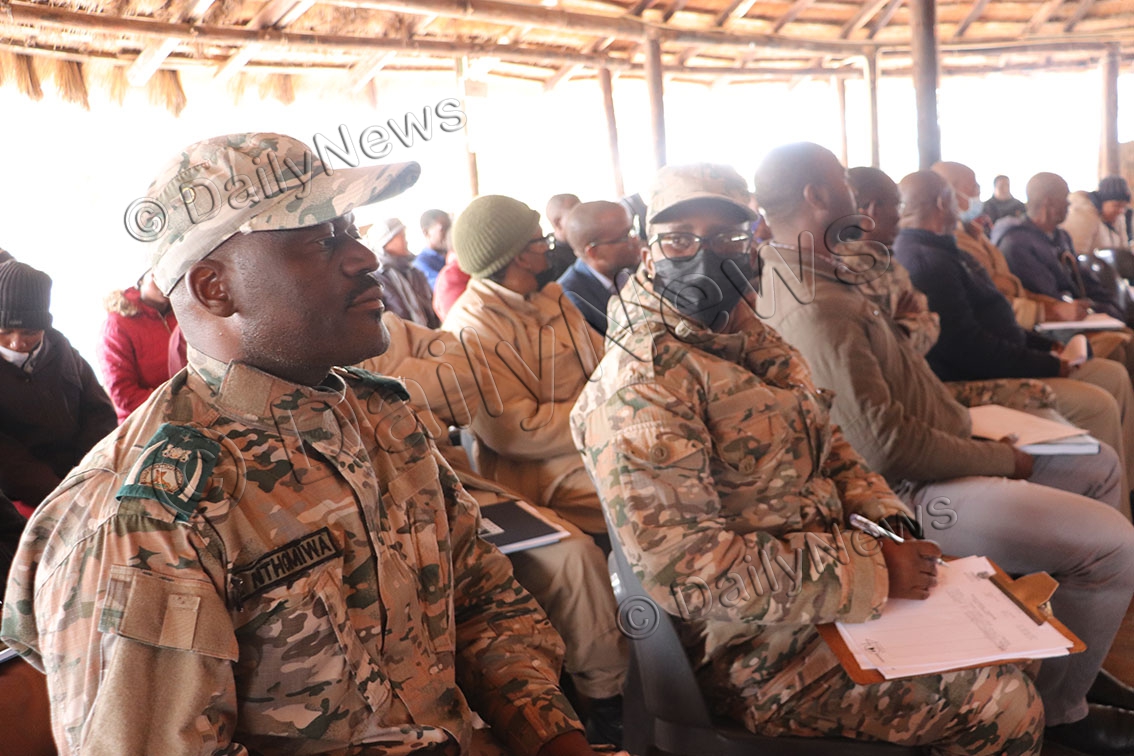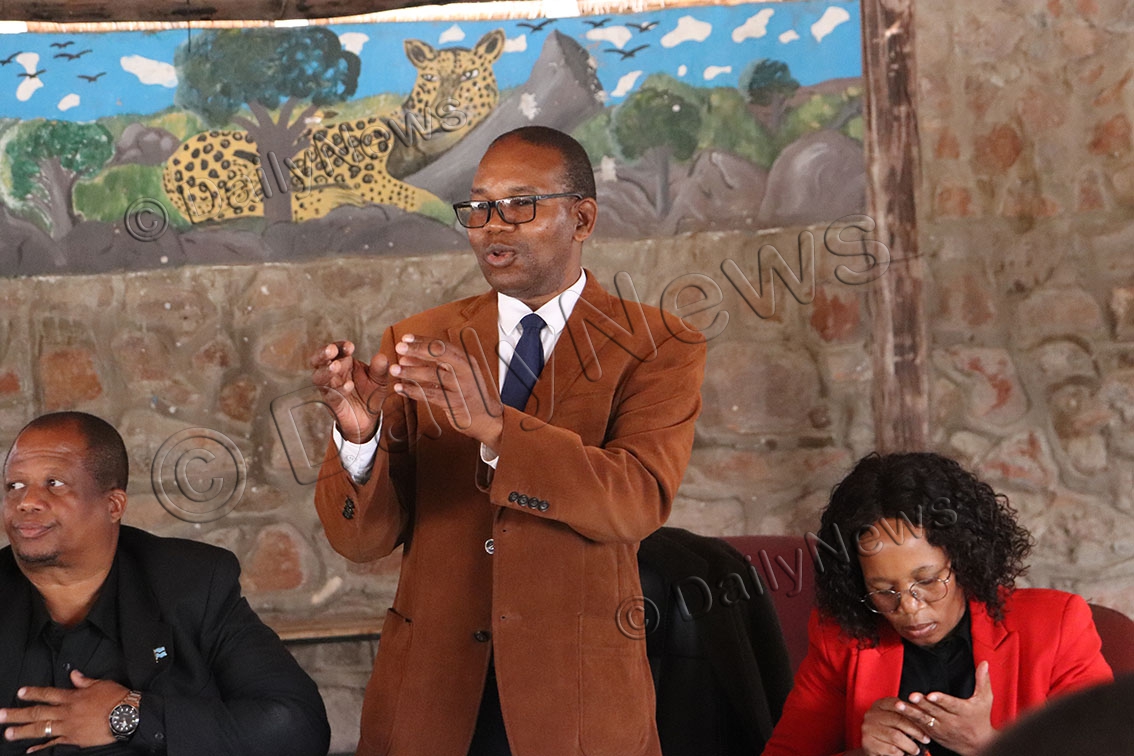Consultations on human-wildlife strategy ongoing
05 Aug 2024
An all-encompassing, robust national human wildlife conflict strategy is underway to help avert human-wildlife conflict, hence consultation of affected communities for their input.
Addressing residents at Tsabong and Khawa Kgotlas recently, Dr Gaseitsiwe Masunga of University of Botswana said government had assembled a team of experts to draw National Human Wildlife Conflict Strategy working with affected communities to end conflict between humans and wildlife.
He said four teams were currently on the ground to consult communities on human-wildlife conflict at Okavango, Tsabong, Chobe, North, and Central Boteti.
He said government was concerned that areas such as Ngamiland, Kweneng and Kgalagadi were endowed with unique tourism resources yet the communities were the hardest hit by poverty.
He said such areas were some of the leading tourism earners with the highest contribution to Gross Domestic Product yet the communities were poor. He said the research would make recommendation on what could be done to ensure people gained from the resources in their area.
Further, Dr Masunga said government paid large sums as compensation to farmers, but people affected by human-wildlife conflict complained that the compensation rates were too low.
He said it was important to consult affected communities adding that the committee was guided by terms of reference, to hear which wildlife species affected them the most as well to map out human wildlife conflict hardest hit areas nationwide.
He advised communities to take a leaf from Namibia community trusts, livestock and farmers committees, which dealt with human-wildlife conflict and compensation where government gave trusts responsibility to manage the conflict. He added that communities must organise themselves to develop modalities for self-compensation for wildlife damage as well as develop an inclusive stakeholder’s engagement plan to incorporate their ideas.
He said people killed wildlife in their defence, and as such It was important to assess how such wildlife could benefit communities, adding that it was critical to develop wildlife value chains and make use of different parts of the animals such as the skins and the bones.
He said in other countries some parts of animal carcass were used to manufacture certain products thus it was pertinent to rethink how animals killed under human-wildlife conflict could be made useful.
He said communities could consider wildlife butcheries, creation of snake parks to avoid killing snakes in homes. “We need to hear what you want to do with the animals. Industries that will economically benefit the people, as well as building of bio diversity centers for wildlife conservation,” he said.
He said research was carried out by Okavango Research Institute engaged by Ministry of Environment and Tourism through department of Wildlife and National Parks to develop a National Human-Wildlife Conflict Strategy and Action Plan.
Making suggestions, one commercial cattle farmer Mr Mock Ntau said communities in Kgalagadi were hardest hit by human-wildlife conflict as present conservation efforts did not suffice. He said compensation rates were low, and must be reviewed to be aligned to the livestock market. He said predators such as lion, leopards, jackals, hyenas, caracal, and other wildlife such as mongoose, eagles, and black crow caused problems for farmers.
Another challenge he said, was that villages were close to Kgalagadi Transfrontier Park which was not fenced, hence the communal grazing areas were closer to the park which contributed to human-wildlife conflict.
He suggested that such areas be fenced to avoid predators killing livestock, and to also protect animals from poachers. He Botswana could emulate Namibia with local trusts given responsibility to deal with compensations.
Mr Thomas Clouse called for sale of trophies for economic gains. He said for a Motswana to go into wildlife business was an expensive business venture. He said financiers such as CEDA required security and market which most Batswana did not have. Thus he said it was important for Batswana to be capacitated with skills to make products and commodities from wildlife by-products.
Mr Leo Tumaeletse called for fast tracking of compensation payments. He said because water was a scarce in parks, wildlife looked for water at nearby cattle posts which caused human-wildlife conflict.
He called for a fence to keep wildlife inside the park. He said high pedigree stock were killed predators and therefore government must consider the value of stock attacked and compensate accordingly.
Another farmer, Mr Montsho Motsewapuo said tracking lions from farms back into the parks was an unending cycle which was costly as they always returned to the farms to strike again.
At Khawa Kgotla meeting community members raised concern that the KD15 wildlife management area was close to Kgalagadi Transfrontier Park hence a small portion of land was reserved for communal grazing. They called for government to harmonise land use planning which they said will ultimately mitigate human wildlife conflict.
They also suggested that the existing predator proof fence be maintained and electrified to separate wildlife and community grazing areas .
Principal wildlife officer Mr Mpho Nthomiwa concurred that they often received complaints from farmers that the compensation rates were low and therefore needed to be reviewed. He said farmers were compensated looking at the animals’ conservation status such as endangered species and that some were dangerous to be tamed by an ordinary human. Ends
Source : BOPA
Author : Calviniah Kgautlhe
Location : Tsabong
Event : Kgotla meeting
Date : 05 Aug 2024








